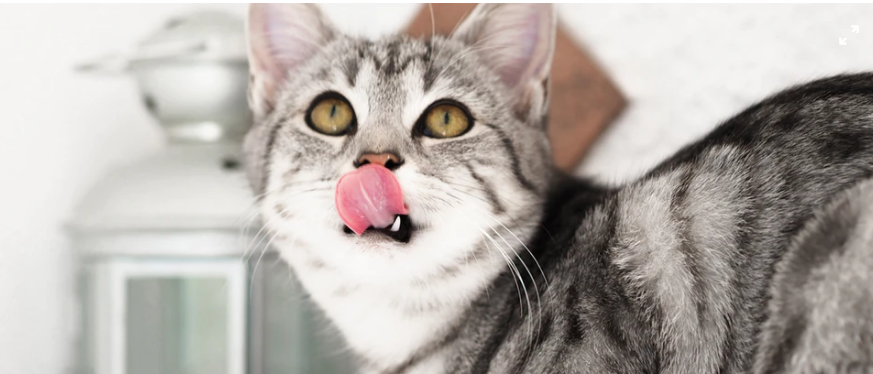
Kitten Food
Kittens very quickly grow into cats, so it’s important that you support them throughout their development with a nutritious, healthy diet. At OlliePets we offer a huge range of delicious, healthy kitten foods, which contain all the nutrients your kitten needs to grow up healthy and strong.
Obesity in cats
There’s no denying that our cats are an important part of our family lives. They live with us, eat in our homes and spend much of their time relaxing on the sofa. But because of their lifestyle away from their natural environment, they can suffer from the somewhat human health issue of obesity. It’s estimated that 30-50% of cats in the UK are overweight or obese – a shocking figure for owners who want nothing but health for their feline companion.
How to check if your cat is overweight or obese
There are a few simple checks that you can do at home to find out if your cat is overweight:
- Check if you can see and feel the outline of your cat’s ribs, spine and hip bones – is there excess fat covering them?
- Look at your cat from above – can you see their waist?
- Look at your cat from the side – is their belly sagging underneath?

If you can’t see or feel your cat’s ribs, spine, hipbones or waist, or their belly sags and moves when they walk, you should take them to the vet for advice. Similarly, if you’re still unsure about your cat’s weight, take them to the vet for a professional health check.
Understanding why your cat is overweight or obese
The most common causes of feline obesity are the same as those of the human problem – too much unhealthy food and a lack of exercise. Luckily for owners, the causes of obesity in cats are easily preventable and can be treated with just a little understanding:
Too many treats?

Do you reward your cat with food? Cats will enjoy the occasional treat, whether it’s specially made for them or is a human-food like salmon, tuna or even some fruits. The problem isn’t with feeding your cat treats, but with overdoing it. Cat treats are often higher in calories than their regular food, so be mindful and don’t overfeed.
Not enough exercise
Cats need exercise to maintain a healthy weight, and keeping them cooped up in a small house or apartment means they won’t have the option of running, chasing and scratching like they would in the wild. Whether your cat has access to the outdoors or is a house cat, there is plenty of environmental enrichment which can be used to ensure they’re getting enough exercise.
The consequences of cat obesity
Obesity is a serious health issue in cats – in the UK alone around half of our pets suffer from weight problems. To understand the severity of feline obesity more fully, take a look at some of the conditions which can be the result:
![[object Object]](https://i1.adis.ws/i/petsathome/adult_cat_eating.jpg?qlt=50&w=400)
- Problems grooming
- Heat intolerance
- Diabetes
- Heart disease
- Cardio-respiratory disorders
- High blood pressure
- Cancers
- Arthritis
Sounds bad, right? If you think your pet is overweight and you don’t know how to address the issue, visit your local vet for help getting them back down to a healthy weight.
How to keep your cat a healthy weight
If you’re worried about your pet’s weight, there are several easy changes you can make to ensure they stay healthy. If your cat is already overweight, it’s best to visit your vet for advice on the best way to start the process – losing weight too quickly isn’t safe for anyone, and it’s important that you help your pet to do so in the healthiest way possible.
Consider your cat’s feeding habits
Firstly, look at the type of food your cat is eating. A cat’s natural diet of smaller animals would be rich in protein and low in carbohydrates. To replicate this diet for your domesticated cat, ensure their diet is high in protein and low in fat and carbohydrates, just like in the wild! Speak to your vet, or a trained in-store nutritionist, about a diet that’s best for your cat.
NOTE: any changes in your cat’s diet should be made gradually, over seven to ten days, by adding a little of the new food to the old and adjusting the quantities of each until their meals are entirely made up of their new food.
Increase exercise
Cats who have access to the outdoors will usually provide themselves with enough exercise. If your cat prefers to stay at home, or is a house cat, they will require plenty of toys and games to keep them moving. Teaser toys are great for playful cats, and don’t require too much effort from you. If you’re usually tired when you come home, check out the range of electronic cat toys for alternatives that your cat can play with by themselves.
For more information and advice about cat nutrition and feeding, explore Pet Talk. If you’d prefer to speak to somebody face-to-face about your cat’s weight, find your nearest vet and arrange an appointment.










